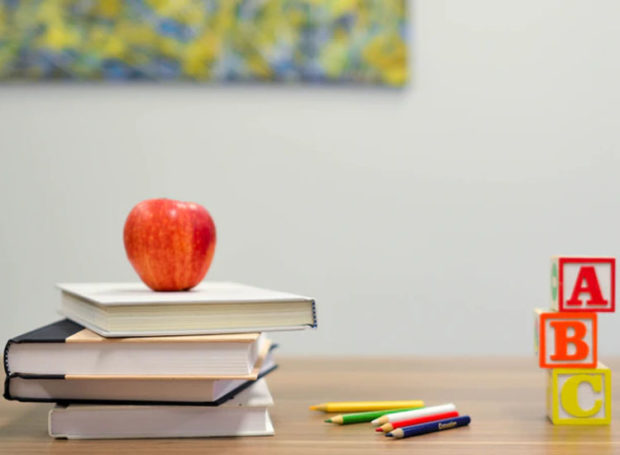
Students’ well-being must always be the priority. Here are 5 tips to help them through lockdown
PTI, Sep 1, 2021, 12:27 PM IST

Source: unsplash
We all know the challenges lockdowns are creating for our children during the COVID-19 pandemic. However, providing effective support for their social and emotional well-being may help us look beyond fears to the possibility of making gains during this interruption to our familiar lives.
Social and emotional well-being relates to the ability to understand ourselves, and others, and to manage life’s challenges. This calls for skills such as being able to: -understand and engage with our emotions and the emotions of others -form and build positive relationships -take on and persist with challenges. Well-being is a broad concept that encompasses the individual and their context, recognising variation among children. It’s crucial to remember well-being is a process of both experience and development, so skills vary with age and circumstances.
Well-being is the greatest cost of lockdowns Loss of well-being was shown to be the greatest cost of lockdowns for students schooling from home in 2020.
The experience of schooling during lockdown varies, but the greatest impact is that it makes existing inequities worse. The lives of too many children and young people are filled with enormous difficulty and limited opportunities. This was the case before lockdown, but the problem has grown.
Schools continue to work tirelessly to meet students’ needs. It is important to recognize there are social issues that require extensive work beyond schooling.
Developing skills helps with well-being The individual aspect of social and emotional well-being involves the ongoing development of key skills. These skills have been variously termed soft skills, 21st-century skills, general capabilities, and dispositions. These skills grow and develop as our life experience expands and the challenges we encounter become more complex.
The benefits of developing social and emotional well-being are important in themselves. However, research has long shown the benefits extend to academic learning.
Well-being skills have been recognised as helping students with schooling during lockdown. Self-organization, autonomy and adaptability enable students to thrive during lockdown. Schooling during lockdown also provides an opportunity to develop these skills in the context of life’s other challenges.
What can we do to support children’s well-being? What can we do to support our children’s well-being in lockdown and beyond through the pandemic?
1. Focus on the potential gains.
We don’t simply “bounce back” from adversity; we need to be able to move forward by supporting our children to work with the challenge of adversity. This includes adults in their lives modelling how to do that, which helps children develop the skills to cope with further adversity that they will inevitably face in their lives.
Research is not showing learning loss through schooling under lockdown, as the latest NAPLAN results also indicate. It is showing gains can be made by working with the situation.
2. Look after our own well-being.
Remember the oxygen mask principle – we need to take care of ourselves to be able to support our children’s well-being. Children develop the skills to self-regulate – that is, they learn to understand and manage their own emotions – when supported through co-regulation with adults. We can only do that when we are taking care of our own well-being.
3. Attend to daily essentials for all.
Play, exercise, get outdoors, socialise and monitor engagement with news media. Each of these activities will look different from what we would choose outside of lockdown, and there are lots of possibilities.
Engaging in unfamiliar ways of doing our everyday activities builds our well-being by developing our ability to be flexible in our thinking and adapt to changing situations.
4. Develop personal skills.
Key skills include self-organisation, autonomy, flexible thinking and adaptability. Well-being is learned through explicit approaches, life experiences and modelling.
We can support children by helping with routines and organisation to enable them to not be overwhelmed.
At the same time, encourage independence through activities they complete without you, such as a Lego challenge. Some other simple things to do include: encourage reading, play board games, promote creative (tech-free) play and teach simple strategies to cope with stress such as the 5, 4, 3, 2, 1 grounding technique.
5. Adjust expectations to the situation.
As we adapt to the circumstances, our expectations need to adapt. Kids will have more screen time for schooling, socialising and, yes, gaming, which will support their well-being. Kids will get distracted, have ebbs and flows in motivation, won’t complete everything for school, will refuse to do some things and will need to take time away from schooling. Give space for this to be acceptable. Remember to model how you manage your own distractions and other responses to working in this different context.
Also, stress looks different in kids. They might be rude, defiant, angry and avoid doing things – even the things they love.
The dominant approach to children’s behaviour at home and school is reward and punishment. It induces a stress response to trigger change in behaviour, so only escalates the stress our children are experiencing now.
Talk and listen to each other’s concerns to find solutions. Recognise when things aren’t a priority for now, such as cleaning their bedroom every week.
There is room for us to gain from the experience of lockdown. We might just need to shift our focus.
Udayavani is now on Telegram. Click here to join our channel and stay updated with the latest news.
Top News
Related Articles More

Wish to work for betterment of my state Odisha: UPSC 2nd rank holder Animesh Pradhan
Climate change is causing marine ‘coldwaves’ too, killing wildlife

Celebrating Vishu: A Tapestry of Traditions Across India

‘Sangh values’ run through my veins; can’t think of filling mother’s shoes: Bansuri Swaraj

Pesticide exposure can increase the risk of Parkinson’s disease in individuals
MUST WATCH
Latest Additions

Kerala man surprises parents with UPSC rank

All set for ‘Surya tilak’ of Ram Lalla in Ayodhya on Ram Navami

LS polls Phase-2: ADR analysis shows 21% of candidates have criminal cases against them

Accused conducted recce around Salman Khan’s house three times before firing

JD(S) seeks EC action over alleged security lapse at meet attended by Deve Gowda
























